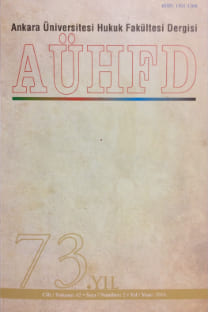ETNİSİTE, ULUSÇULUK – SINIF DİYALEKTİĞİNDE MARX’I YENİDEN OKUMAK
1848 kitle hareketlerinin yarattığı devrimci dalganın Kıta Avrupası’nda etkisini yitirmeye başlamasıyla birlikte İngiltere’ye sığınan Marx için ‘parlak, kutsal, lanetlenmiş, fakat yine de hayatı boyunca hiç şaşmamacısına, kaçak bir göçmen’ olarak geçireceği sürgün yılları da başlamış oldu. Marx’ın siyasi bir göçmen olarak geçirdiği hayatının bu evresi, ekonomi politiğin eleştirisine ilişkin parlak ve bir o kadar da kutsal olan düşünce tasarılarını kurguladığı bir döneme tekabül ettiği gibi, Batı dışı toplumlara dair artan ilgisiyle birlikte etnisite, ırk ve ulus olgularıyla bezenmiş yeni düşünce keşiflerine çıktığı bir süreci de içermiştir. Bu çalışma, Marx’ın yaşamının bu evresinde çıktığı düşünce yolculuklarına ait olan Elyazmaları, gazetecilik çalışmaları, mektupları, Enternasyonal için yazdığı örgüt manifestoları ve defterlerinin gizil sayfalarında kalmış notlarını ön plana çıkararak, ünlü düşünürün ihmal edilmiş ya da görmezden gelinmiş derinlikli kuramsal dünyasını keşfetmeyi amaçlamaktadır. Gayemiz, katı olan her şeyin buharlaşıp yok olduğu Marx’ın modern dünyasında, etnisite - ulus - sınıf diyalektiğini yeniden okumaya çalışmaktır.
Revisiting Through Marx Ethnicity, Nationalism and Class Dialectics
As the revolutionary wave created by the mass movements of 1848 beganto lose its influence in the Continental Europe, Marx, who took refuge inEngland, began the years of exile, which he would spend as a "brilliant, holy,cursed, but still no wonder, illegal immigrant" throughout his life. This phase of Marx's life as a political immigrant corresponds to a period in which he formulated brilliant and equally sacred ideas of criticism of political economy,as well as new discoveries of thought embellished with the facts of ethnicity,race and nationality, with his increasing interest in non-Western societies.This study aims to demonstrate Marx's disregarded thoughts, through thisperiod of his life. In order to do so, we are going to explore from hismanuscripts, journalism works, letters, manifests for S. International andnotebooks. Hence, we are aiming to understand and demonstrate Marx's wayof thinking in a thorough way. Finally, the core objective of this study is toexplain ethnicity- nationalism and class in Marx's modern world where 'AllThat is Solid Melts Into Air'.
Keywords:
Ethnicity, Nationalism, Marx, Class,
___
- Marx, Karl ve Frederich Engels (1858), Karl Marx And Frederich Engels Letters (1856- 1859), Marx and Engels Collected Works, Cilt 40, s. 248-250.
- Marx, Karl ve Friedrich Engels (1848). “On the Polish Question”, Marx and Engels Collected Works, Cilt 6, s. 545-552.
- Marx, Karl ve Friedrich Engels (1880). “To The Meeting in Geneva Held To Commemorate the 50th Anniversary of the Polish Revolution of 1830”, Marx and Engels Collected Works, Cilt 24, s.343-345.
- Marx, Karl ve Engels Friedrich (1848). Manifesto of the Communist Party, Marx and Engels Collected Works, Cilt 6, s.477- 519.
- Marx, Karl (1864). “A Correction”, Marx and Engels Collected Works, Cilt 20, s.97-98.
- Marx, Karl (1864). “Confidential Communication”, Marx and Engels Collected Works, Cilt 21, s.112-124.
- Marx, Karl (1857). “English Atrocities in China”, Marx and Engels Collected Works, Cilt 15, s. 232-235.
- Marx, Karl (1864). “Inaugural Address of the Working Men's International”, Marx and Engels Collected Works, Cilt 20, s.5-13.
- Marx, Karl (1857). “İndian News”, Marx and Engels Collected Works, Cilt 15, s. 314-317.
- Marx, Karl (1847). “On Poland. Speeches at the International Meeting Held in London on November 29, 1847 to Mark the 17th Anniversary of the Polish Uprising of 1830”, Marx and Engels Collected Works, Cilt 6, s.388-389.
- Marx, Karl (1867). “Outline of a Report on the Irish Question Delivered to the German Workers' Educational Society in London”, Marx and Engels Collected Works, Cilt 21, s. 194-206. Marx, Karl (1858). “Political Parties in England.— Situation in Europe”, Marx and Engels Collected Works, Cilt 15, s. 566-569.
- Marx, Karl (1867). “Record of a Speech on the Irish Question Delivered by Karl Marx to the German Workers' Educational Society in London”, Marx and Engels Collected Works, Cilt 21, s.317-319.
- Marx, Karl (1856). “Revelations of the Diplomatic History of the 18th”, Marx and Engels Collected Works, Cilt 15, s.25-96.
- Marx, Karl (1853). “Revolution in China and in Europe”, Marx and Engels Collected Works, Cilt 12, s. 93-100.
- Marx. Karl (1853). “The British Rule in India”, Marx and Engels Collected Works, Cilt 12, s. 125-133.
- Marx, Karl (1858), “The Emancipation Question”, Marx and Engels Collected Works, Cilt 16, s. 139-147.
- Marx, Karl (1853). “The Future Results Of British Rule in India”, Marx and Engels Collected Works, Cilt 12, s 217-222.
- Marx, Karl (1853). “The Indian Question”, Marx and Engels Collected Works, Cilt 12, s.157-162.
- Marx, Karl (1857). “The Indian Revolt”, Marx and Engels Collected Works, Cilt 15, s. 353-356.
- Marx, Karl (1856). Karl Marx and Friedrich Engels Letters (1856- 1859), Marx and Engels Collected Works, Cilt 40, s. 85-87.
- Marx, Karl (1863). Karl Marx and Friedrich Engels Letters (1860-1864), Marx and Engels Collected Works, Cilt 41, s. 453.
- Marx, Karl (1867). Karl Marx and Friedrich Engels Letters (1864-1868), Marx and Engels Collected Works, Cilt 42, s. 484-486.
- Marx, Karl (1869). Karl Marx and Friedrich Engels Letters (1868-1870), Marx and Engels Collected Works, Cilt 43, s.389-391.
- Marx, Karl (1870). Karl Marx and Friedrich Engels Letters (1868-1870), Marx and Engels Collected Works, Cilt 43, s.471-476.
- ISSN: 1301-1308
- Yayın Aralığı: Yılda 4 Sayı
- Başlangıç: 1943
- Yayıncı: Ankara Üniversitesi Hukuk Fakültesi
Sayıdaki Diğer Makaleler
BÖLGE ADLİYE MAHKEMESİ CUMHURİYET BAŞSAVCILIĞININ OLAĞANÜSTÜ İTİRAZ YETKİSİ
İlhami ÖZTÜRK, Arif Emre SÜMER
TÜRK HUKUK TARİHİNDE KANUN-I MUVAKKAT KAVRAMI VE UYGULAMASI
TİCARİ İŞLEMLERDE TAŞINIR REHİNLERİ ARASINDA SIRA
ETNİSİTE, ULUSÇULUK – SINIF DİYALEKTİĞİNDE MARX’I YENİDEN OKUMAK
HAKİM ve SAVCILAR HAKKINDAKİ SUÇ SORUŞTURMA ve KOVUŞTURMALARINDA UYULACAK USUL ve ESASLAR
6183 SAYILI AMME ALACAKLARININ TAHSİL USULÜ HAKKINDA KANUN’A GÖRE HACZE İŞTİRAK
Basın Suçlarında Ceza Sorumluluğu
